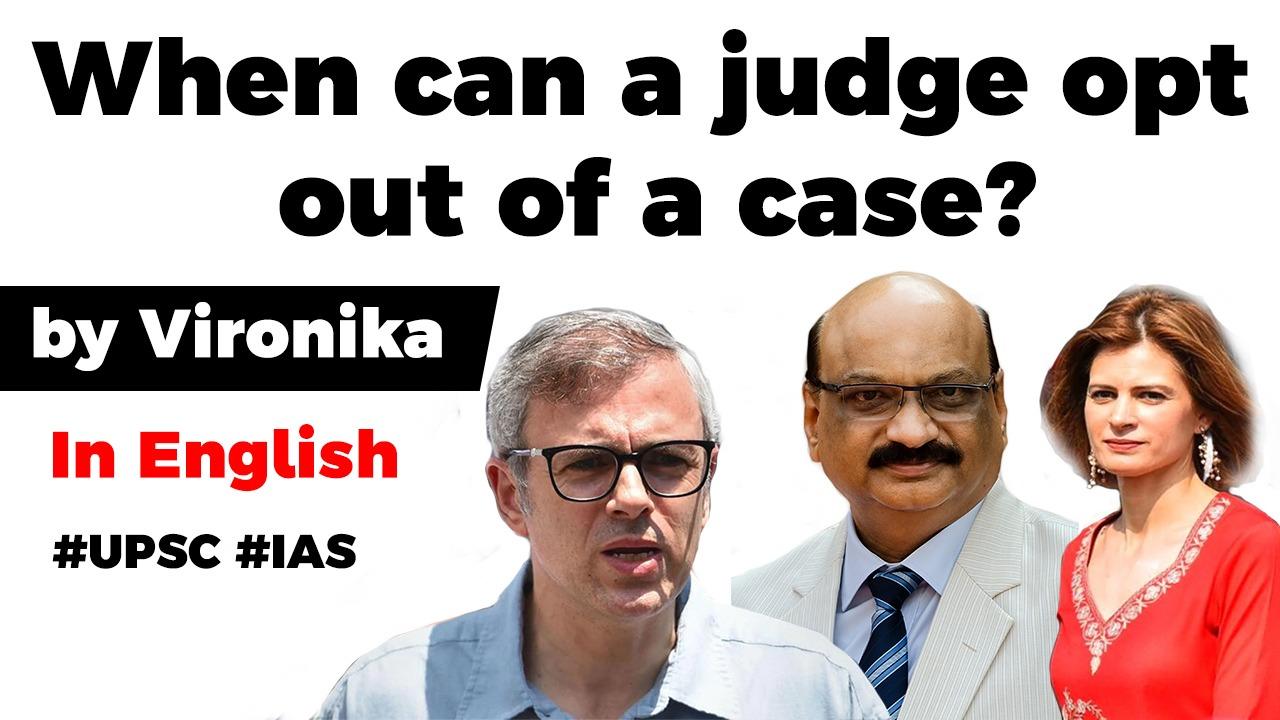Table of Contents
- Recently a Supreme Court judge recused himself from hearing a petition filed against the government’s move to charge Omar Abdullah under the Public Safety Act.
- The case was finally heard by another bench.
- Preventive Detention Law: Under Jammu & Kashmir Public Safety Act, 1978, a person is taken into custody to prevent him or her from acting in any manner that is prejudicial to the security of the state or the maintenance of public order.
- Challenging the Detention: The only way the administrative preventive detention order can be challenged is through a habeas corpus petition filed by relatives of the detained person.
- No written rules
- discretion of a judge
- conscience of the judge.
- Recusal usually takes place when a judge has a conflict of interest or has a prior association with the parties in the case.
- In his separate opinion in the NJAC judgment in 2015, Justice (now retired) Kurian Joseph, who was a member of the Constitution Bench, highlighted the need for judges to give reasons for recusal as a measure to build transparency.
- It is the constitutional duty, as reflected in one’s oath, to be transparent and accountable, and hence, a judge is required to indicate reasons for his recusal from a particular case, Justice Kurian wrote.
- In 2018, petitioners in the Judge Loya case sought the recusal of Supreme Court judges, Justices A.M. Khanwilkar and D.Y. Chandrachud, from the Bench as they both hailed from the Bombay High Court.
- In 2018, petitioners in the Judge Loya case sought the recusal of Supreme Court judges, Justices A.M. Khanwilkar and D.Y. Chandrachud, from the Bench as they both hailed from the Bombay High Court.
Concerns
- Undermining judicial independence
- Difference interpretations
- Absence of rules – In disputes where a judge has a financial interest in the litigation, where a judge owns shares in a company which is party to the case, the fact of owning shares is considered a disqualification.
- As the Constitutional Court of South Africa held, in 1999, “the nature of the judicial function involves the performance of adifficult and at times unpleasant tasks,” and to that end, judicial officers “must resist all manner of pressure, regardless of where it comes from.
- This is the constitutional duty common to all judicial officers. If they deviate, the independence of the judiciary would be undermined, and in turn, the Constitution itself.”
- Recusals should not be used as a tool to maneuver justice, as a means to picking benches of a party’s choice, and as an instrument to evade judicial work.
- Judicial officers must resist all manner of pressure, regardless of where it comes from.
- This is the constitutional duty common to all judicial officers.
- If they deviate, the independence of the judiciary would be undermined, and in turn, the Constitution itself.
- Hence, a rule that determines the procedure for recusal on part of judges should be made at the earliest.
Latest Burning Issues | Free PDF






















 WhatsApp
WhatsApp